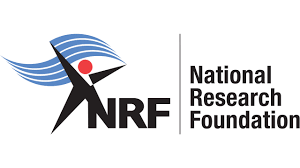 Menu
Menu
Published: 19 Jul 2021 901 views
Humboldt-Universität zu Berlin, Stellenbosch University, University of the Western Cape and University of KwaZulu-Natal are jointly establishing the International Research Training Group (IRTG) Transformative Religion: Religion as Situated Knowledge in Processes of Social Transformation, funded by Deutsche Forschungsgemeinschaft (Germany, DFG) and National Research Foundation (South Africa, NRF).
In this German-South African IRTG, the following doctoral positions are advertised:
Germany (Humboldt-Universität zu Berlin):
6 doctoral researchers (65% full time equivalent E13 TVÖD, funded by DFG)
4 doctoral researchers (self-funded)
South Africa (Stellenbosch University, University of the Western Cape, University of KwaZulu-Natal):
8 doctoral researchers (NRF doctoral bursary, funded by NRF)
4 doctoral researchers (self-funded)
for the period from 01.01.2022 to 31.12.2024.
Against the backdrop of discursive differences in perceiving and positioning religion in the field of knowledge between the global north and the global south and with a distinctive decolonial approach, this IRTG aims at a critical epistemology through which the situatedness of religious knowledge production and reception in processes of social transformation can be researched. In case studies from contexts in the global South and North, the IRTG seeks to investigate religion as specifically situated knowledge functioning as a resource and as a site of social transformation. It engages scholars from two continents and a variety of disciplines to go beyond conventional research approaches.
The research focus of the IRTG unfolds in the following four research areas:
The NRF was established through the National Research Foundation Act (Act No 23 of 1998), following a system-wide review conducted for the Department of Arts, Culture, Science and Technology (DACST). The new entity incorporated the functions of the research funding agencies that were previously servicing various sections of the research community, namely the former Centre for Science Development (CSD) of the Human Sciences Research Council (HSRC) and the former Foundation for Research Development (FRD) that included several National Research Facilities. As an entity of the Department of Sci... continue reading

| Application Deadline | 15 Aug 2021 |
| Type | PhD |
| Sponsor | National Research Foundation (NRF) |
| Gender | Men and Women |
Candidates can either apply for the DFG/NRF funded positions or apply for membership in the IRTG without funding.
he IRTG Transformative Religion seeks applications of candidates who would like to pursue a doctoral dissertation in the thematic framework of the IRTG.
Required:
Desirable:
Selection Criteria:
Humboldt-Universität zu Berlin, Stellenbosch University, University of the Western Cape and University of KwaZulu-Natal are committed to a transparent and fair selection process. Applications will be reviewed by the admission board of the IRTG in a structured selection process based on standardised guidelines. The main criteria for selection of individual candidates are:
Factors that may have hindered an applicant’s academic career such as (child)care obligations, disabilities, chronic illnesses, minority discrimination or other conditions or situations of hardship can be voluntarily disclosed and will be taken into consideration during the selection process.
The IRTG aims for an equal proportion of female and male doctoral researchers. Female candidates and candidates with non-binary gender are particularly encouraged to apply. Severely disabled applicants with equivalent qualifications will be given preference. On the South African side, at least two thirds of the positions will be allocated to candidates from previously disadvantaged population groups.
Accepted as well as rejected candidates will receive a summary of the justification of the admission board’s decision once the selection process has been completed. Should the candidates feel they have been treated unfairly, they can launch an appeal against the decision. Should the independent appeals committee of the IRTG find that the selection process has not been fair, the admission board will reconsider its decision and, if necessary, the selection process will be repeated.
Applicants are be required to submit:
Kindly submit all documents in one pdf file named SURNAME_FIRSTNAME.pdf via e-mail to [email protected]. Shortlisted candidates will be invited to an individual interview scheduled for mid-September 2021.
Should you have any questions, do not hesitate to contact the IRTG coordinator, Dr Clemens Wustmans at the above e-mail. We’re looking forward to your application!
For more details, visit the website.